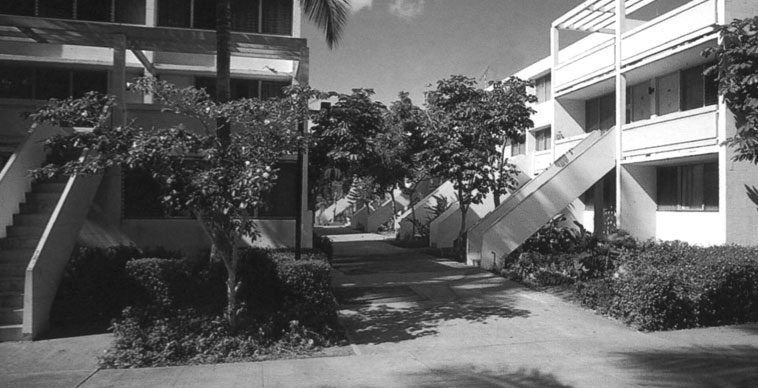Locals speculate the Kukui Gardens sale was orchestrated to bail out the foundation from recent financial troubles. The foundation’s 2006 tax filings showed that it lost more than $630,000 – about one-fifth of its assets – in a poorly performing Morgan Stanley junk-bond issue overseen by a Morgan Stanley employee who is the son of a former Ching Foundation trustee. This spring the Hawaii attorney general’s office began investigating complaints of conflict of interest in the foundation’s investing.
And Wallace Ching, the only Kukui Gardens Corp. board member who opposed the Kukui Gardens sale, was voted off the board after questioning its financial accounting and management. In August 2006, he sued the company and its board, alleging the foundation mismanaged assets and didn’t provide him with details of the sale.
When Anzai heard about the proposed sale, she called Rod Tam, a city councilman who had previously represented the area as state senator and helped defeat a proposed rent increase at Kukui Gardens. Tam, a well-known firebrand, was incensed at the news.
“I contacted Carmel Partners and told them openly they’re not welcome here in Hawaii,” he said. “I called them carpetbaggers. They didn’t like that. It was a matter of telling them we will fight you. Once things started happening, they realized they had to deal with the residents.”
Tam contacted FACE, which works on housing, jobs, and other economic and community-justice issues. The stakes were clearly high: Kukui Gardens is the state’s largest HUD-insured affordable-housing project, and one of the larger ones nationwide. With such a severe shortage of affordable housing, the transformation of Kukui Gardens into market-rate housing could mean homelessness or drastic upheavals for many of the residents, who pay on average $444 to $818 a month for one- to four-bedroom units. Market rates are exponentially higher.
HUD data show that more than 50,000 renter households in the city are paying more than they can afford or living in overcrowded units. A 2003 Hawaii housing policy study commissioned by state and local agencies showed “very low or no” production of new rental units, causing “low-income households to be squeezed out of the market altogether.”
“It seems like everything is being built for luxury and people with a lot of money,” said Newell, 82, who raised four kids as a single mother at the complex. “People just come for a few months and don’t even live here. But where are the local people going to live? That’s why we have so many people living on the beach, all these working homeless who are working but still can’t afford a place to live. I don’t know what I would have done (if the sale went through), I don’t want to be a burden on my children, but it might have come to that.”
Anzai rallied residents to fight for their homes, and FACE organizers launched a campaign that brought together local and state politicians, clergy, and national fair-housing experts. They formed alliances with groups and individuals who were coalescing to fight sweeps of homeless people on beaches and parks. In March 2006 after city officials evicted almost 200 homeless people from Ala Moana Beach Park, protesters marched to City Hall and camped out there.
“A lot of sympathy developed around that because there were working families with kids who were becoming homeless,” said the Reverend Bob Nakata, a former state representative (1982-1986) and state senator (1998-2002) and pastor of the Kahaluu United Methodist Church on the windward side of the island. “Where previously there was the attitude of get the homeless out of our communities, now there was a much more positive attitude. With Kukui, the connection was made quickly, that affordable housing had to be preserved. There was a lot of dovetailing between the homeless advocacy movement and Kukui Gardens.”
Hawaii Governor Linda Lingle called the prepayment plan illegal and spearheaded the passage of legislation in July 2006 allowing the state to use eminent domain to prevent the sale. However, in order to invoke eminent domain, the state would have needed to condemn the property. Lingle said she would take that measure only as a last resort, if efforts to turn the project over to a nonprofit developer failed. As it turned out, Lingle didn’t need to invoke eminent domain to save the affordable development. But FACE organizers say her support and willingness to intervene was invaluable.



Once the mortgage was prepaid, they would be freed from HUD restrictions and allowed to sell the development. warts home remedies